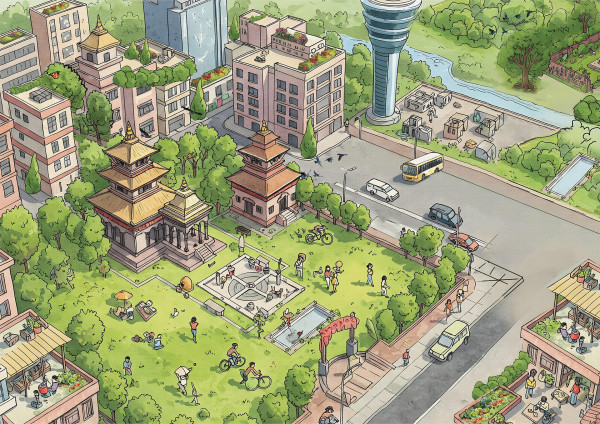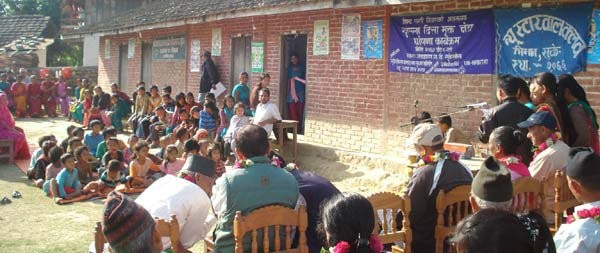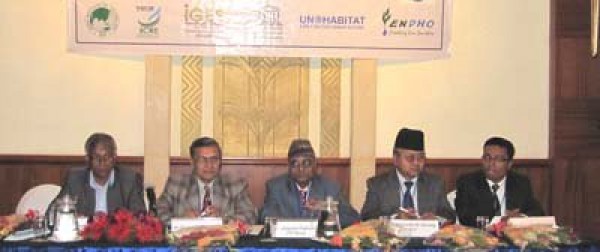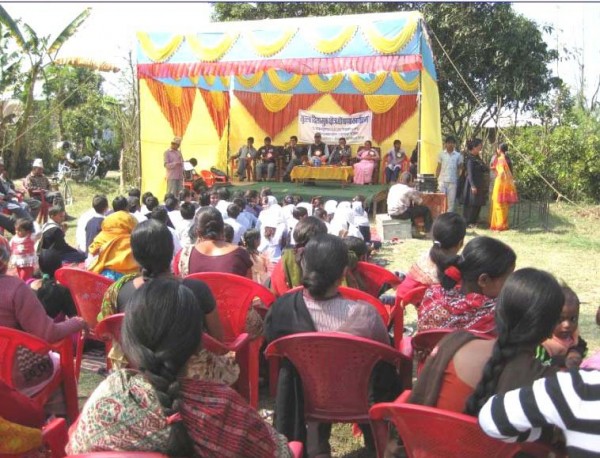Municipalities of Nepal share successful practices on Solid Waste Management
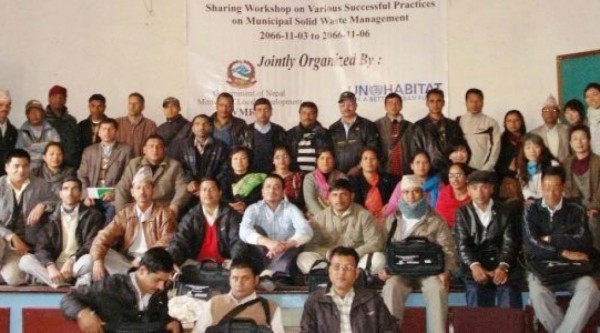
Kathmandu, 28 Feb: The national level four days workshop on “Experience Sharing on Successful Practices on SWM” had been organized by UN Habitat Water for Asian Cities (WAC) Programme Nepal and Solid Waste Management and Resource Mobilization Centre under Ministry of Local Development (SWMRMC/ MoLD) from 15-18 February 2010 to understand issues and challenges faced by municipalities. The workshop had been expected to be helpful to introduce and motivate municipalities to adopt cost effective, efficient and environment friendly new technologies to improve solid waste management at local level. Speaking about the trend of progress of municipal SWM in Nepal, Ashok Shahi, Engineer of SWMRMC/ MoLD told that lack of adequate laws & legislations, weakness in institution arrangements, inefficient use of existing resources, lack of technology transfer & appropriate technologies are the major challenges in municipal SWM in the country. At the workshop, a team of experts on SWM had been invited from UN Habitat Regional Office for Asia and the Pacific (ROAP) to orient the participants to different SWM technologies- being implemented in Japan, so that municipalities of Nepal could adopt appropriate technology to overcome SWM problems. Sachiyo Hoshino, Special Adviser to the Director, UN Habitat ROAP, while speaking about the municipal SWM in Japan, told that 78 percent of solid waste produced is incinerated, while remaining 20 percent is recycled. Youiko Taira and Nobuko Hatano from UN Habitat ROAP trained the participants on cardboard composting technique, which can be applicable to manage degradable solid waste at its source and reduce production of solid waste. The workshop also shared various successful practices municipal SWM of Nepal, and discussed on the issues and challenges, the municipalities are facing due to unmanaged solid waste. The experts from UN Habitat ROAP, Japan also presented a paper about the SWM system of Fukuoka City, Japan to guide the participating municipalities in dealing with the problems related to SWM. Thirty nine municipal staffs and other WATSAN stakeholder from 29 different municipalities and small towns of Nepal were introduced to various successful practices on municipal solid waste management during a four-day sharing workshop held from 15-18 February, 2010 in Lalitpur, Nepal. UN Habitat is providing its support to MoLD/SWMRMC for last three years to build the capacity of municipal staff on SWM and to orient municipalities on clime change issue and clean development mechanism, as well as facilitate them in developing strategic planning for municipal SWM. The MoLD/ SWMRMC has recently prepared National Solid Waste Management Technical Guideline for Municipalities of Nepal. Similarly, the Government of Nepal has also drafted the New Solid Waste Management Act with support of UN Habitat. UN Habitat is further supporting MoLD to enhance the capacity of SWMRMC, and develop it as a lead government technical institute on urban solid waste management to support all municipalities in SWM.


